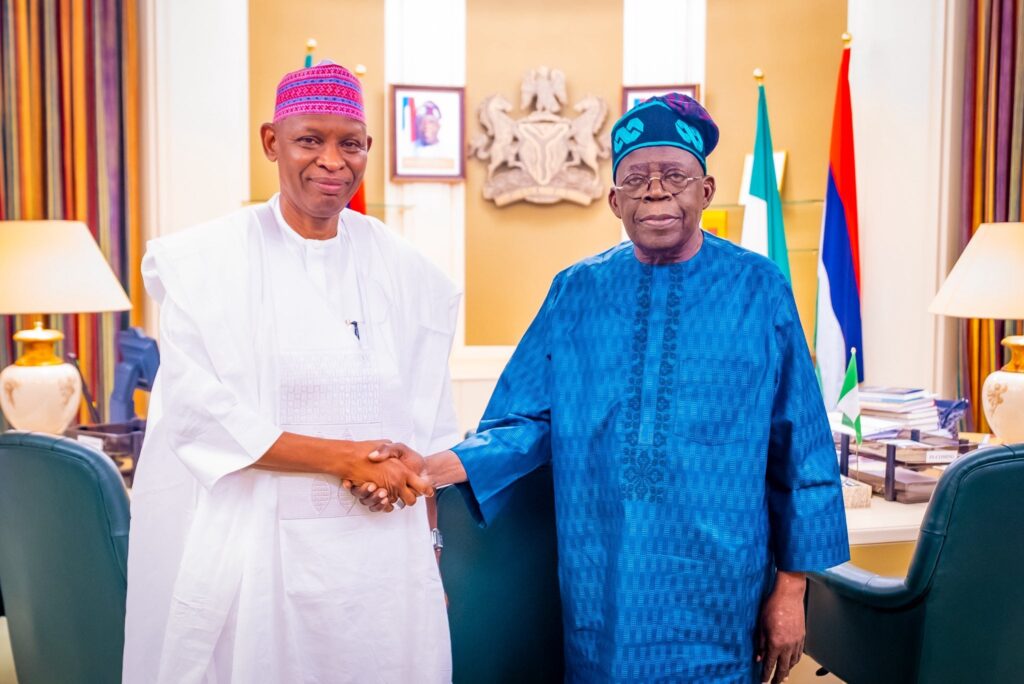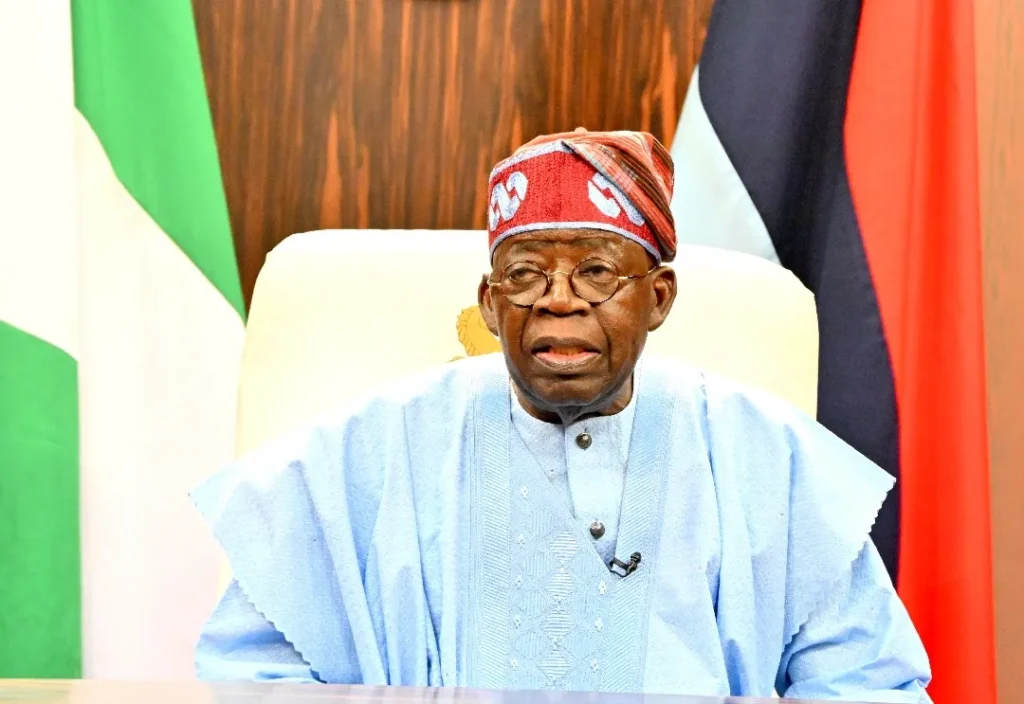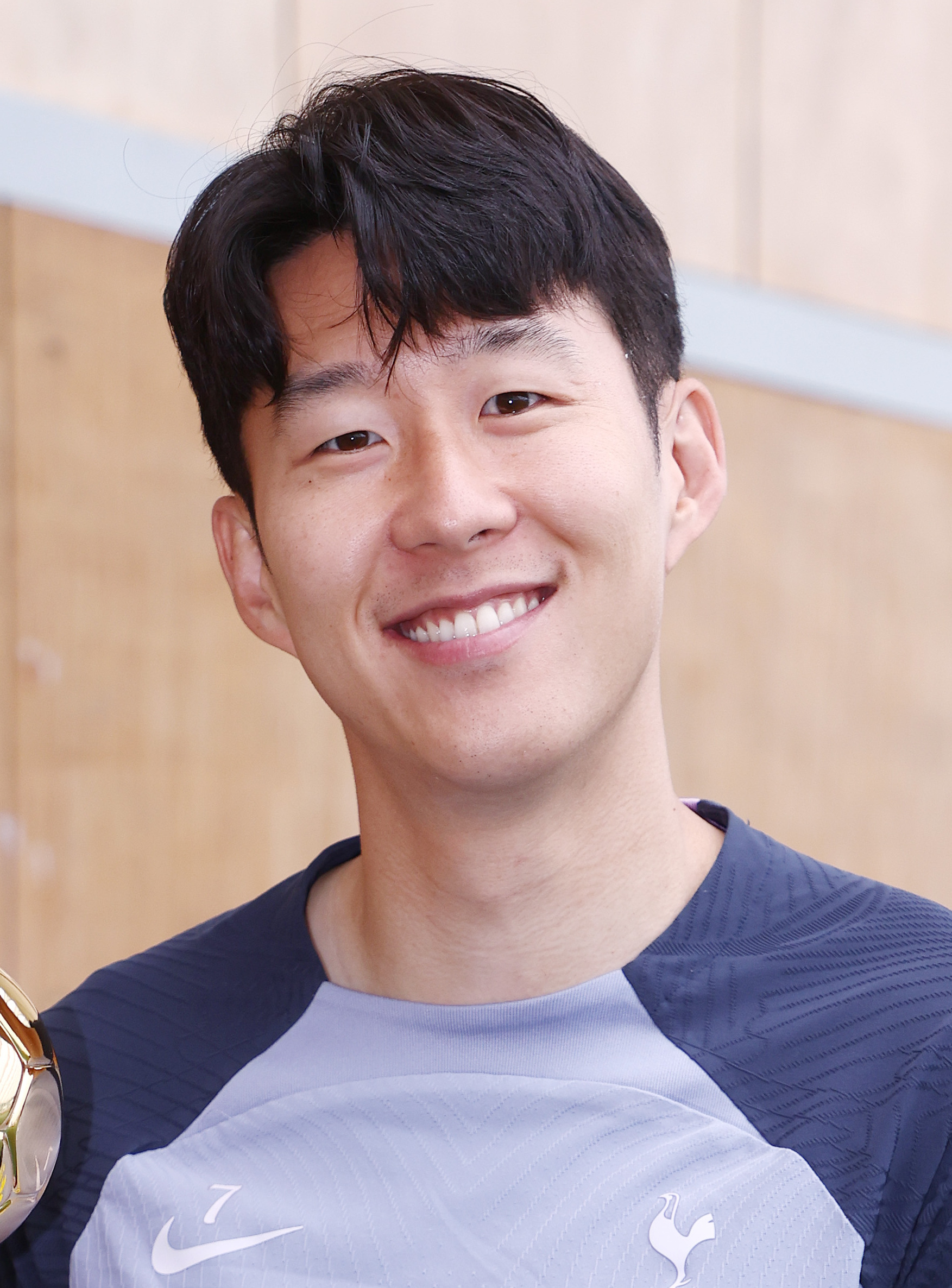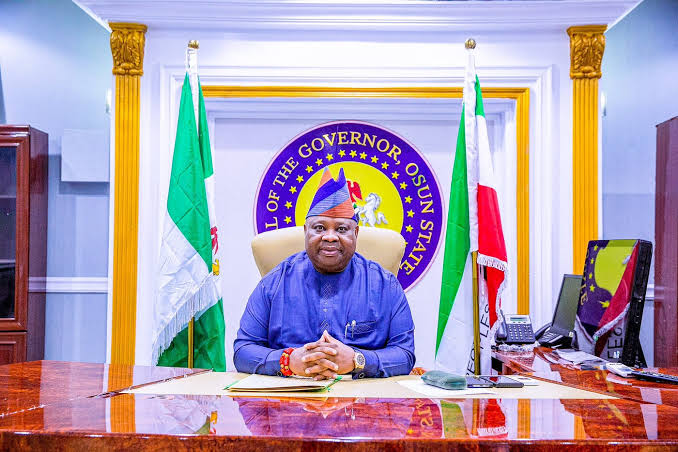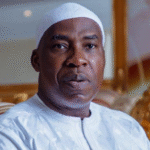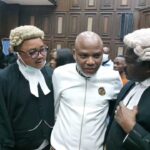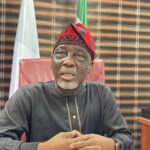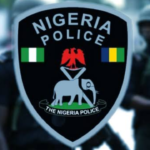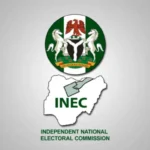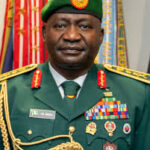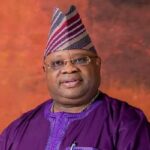Now Reading: 2027: Tinubu walks Jonathan’s northern tightrope
-
01
2027: Tinubu walks Jonathan’s northern tightrope
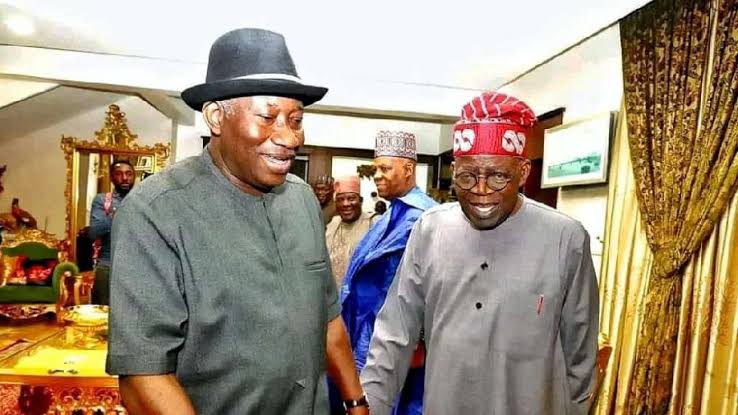
2027: Tinubu walks Jonathan’s northern tightrope
As political alignments and realignments peak ahead of the 2027 presidential bout, President Bola Tinubu appears to be treading an undulating path very similar to that of former President Goodluck Jonathan.
He is navigating rising discontent and shifting political allegiances especially in the northern region.
With murmurs of revolt, regional resentment, elite disaffection and grassroots agitation growing louder, Tinubu now finds himself balancing on a tightrope where one misstep could cost him the support of a powerful voting bloc.
Much like the political maneuvers that unfolded during President Goodluck Jonathan’s re-election bid, which ultimately cost him the presidency, northern political stakeholders appear to be retracing familiar steps.
They are actively strategising, recalibrating and positioning themselves to wrest power from yet another southern president ahead of the 2027 election.
A formidable and vocal opposition coalition, driven by influential political figures from across the northern geopolitical zones, including former Vice President Atiku Abubakar, former Senate President David Mark and former Attorney General of the Federation Abubakar Malami, among others, has mounted sustained pressure on the Tinubu administration, levelling a barrage of critical allegations against the government.
The incumbent administration is being accused of nepotism, bias and systematically excluding and underdeveloping the region by design, particularly in federal appointments and project allocations. It was the exact same accusation during the Jonathan administration.
In a replay of the Jonathan-era intrigue over Vice President Namadi Sambo’s place on the ticket, whispers of a possible shake-up are once again gaining traction, this time around Vice President Kashim Shettima, as uncertainty clouds his political fate ahead of the 2027 presidential race.
In retrospect, during Jonathan’s era, there was an alleged manipulated escalation of insecurity across the northern region through organised kidnapping, suicide bombings, and other nefarious activities by non-state actors.
The creation of the All Progressives Congress (APC), a merger of Congress for Progressive Change (CPC), All Nigerian Peoples Party (ANPP), Action Congress of Nigeria (ACN) and a faction of the new People’s Democratic Party (nPDP), served as a powerful political tool against Jonathan.
Coupled with coordinated bombings in Abuja and other key locations and kidnapping of school children, these actions were effectively used to destabilise his administration and forcefully strip him of re-election prospects.
Today, similar patterns are emerging, with the African Democratic Congress (ADC) providing a platform for a revitalised opposition coalition, reflecting past strategies to challenge the administration through sharp critiques and political mobilisation.
Only recently, ADC national chairman, David Mark, inflamed the hostility while speaking at the third plenary session of Northern Political Consultative Group (NOCG) in Abuja, stressing that; “the north, as we know, is a land of rich history and mineral resources, fertile land for agriculture, diverse cultures and immense potential.”
“Despite these blessings, we are confronted with deep-seated challenges of insecurity, poverty, ethnic/religious tensions, political fragmentation, and social and economic stagnation. These challenges did not develop overnight, nor will they disappear until we resolve to take deliberate, collective, and decisive action. Over the last decade, banditry, terrorism, insurgency, and communal clashes have turned our villages into battlegrounds, displacing millions and crippling our economy.
“Despite its vast resources, the North remains the poorest region in the country, with alarming rates of illiteracy, unemployment, and poor infrastructure. Mistrust between and among ethnic groups and religious communities has been exploited by selfish and desperate interests, leading to violent conflicts. Instead of uniting for common goals, our elites often prioritise personal and sectional interests over collective progress.
“The challenges facing northern Nigeria are intricately interconnected. Insecurity scares away investors, which in turn deepens poverty. Poverty fuels desperation and crime. Ethnic divisions weaken our collective resolve to demand good governance. Political fragmentation ensures that no meaningful development takes root in our region. This is not the North that we inherited,” he rallied the region, enumerating the problems.
Curiously, the anti-north hostilities against the present administration have continued to increase at a disturbing exponential magnitude. The persistent speculations over the future of the incumbent vice president, Shettima, on the possibility of President Tinubu retaining him as his running mate during the 2027 presidential election have been politicised and exploited as a source of division.
Much like Jonathan before the 2015 election, President Tinubu now finds himself under intense pressure, battling allegations of nepotism over key appointments favouring the South West. In a bid to quell northern discontent, his administration has made conciliatory moves, most notably, the recent appointment of several northerners to head strategic federal agencies. Yet, with insecurity resurging across the country, particularly in the North, Tinubu faces an uphill task convincing Nigerians that safety and inclusion remain top priorities.
Until recently, the ruling party enjoyed momentum from a steady stream of defections across party lines.
However, the political tide is shifting, with recent government actions appearing largely responsive, focused on addressing northern concerns and reinforcing the administration’s message of national unity and inclusion.
From the consciously organised programmes involving major political stakeholders to communicate to the North on the efforts of the administration to accommodate the region, to the prompted comments by certain political heavyweights, especially from the region, to launder the image of the current administration, the Tinubu-led government has not hidden the fact that the growing anti-north hostilities against his administration is becoming a major concern considering the volume of votes they bring to the table during presidential elections.
As part of efforts to pacify the region, the recent appointment of Prof. Nentawe Goshwe Yilwatda as National Chairman of the ruling APC appears aimed at addressing the long-standing demands of the North Central zone to reclaim the position following the removal of former Nasarawa State Governor, Abdullahi Adamu.
In what may suggest signs of unease, the presidency has either been engaging directly with key northern political figures, such as 2023 NNPP presidential candidate Rabiu Musa Kwankwaso and his Kwankwasiyya Movement, or, alternatively, leveraging loosely defined socio-political groups and outspoken voices like the Arewa Think Tank (ATT) to manage public perception and bolster the administration’s image in the region.
And assuring that the northern region will back Tinubu’s re-election, the ATT had enumerated his laudable achievements, like improved security, education and infrastructure in the north and the entire country, to drum up support for him.
According to the group, “ATT wants to call on the people of the North to rally round Mr. President and re-elect him in 2027 for more infrastructural developments to come to the region.”
“We must tell ourselves the bitter truth that, as it is now, the north does not need political power for now, but infrastructural and human development, which President Tinubu has continuously been pushing to our people in the north. Our candid advice to northern leaders is that they should stop playing the blame game and instead focus on longstanding regional neglect, which Tinubu has come to repair.
“We must be honest; Tinubu didn’t create the insecurity or poverty in the North. The rot started long before him, and we are forced to ask, where were those loud voices now blaming him when the North was neglected and abandoned by its leaders who were at the helm of affairs of this country? We must commend the Tinubu-led administration for its efforts in improving security, education, and infrastructure in the North,” the group requested.
The presidency has also backed recent outreach efforts, including a high-level summit in Kaduna involving key political and traditional northern stakeholders, an apparent move to ease growing tensions toward President Tinubu.
While the two-day session, hosted by the Sir Ahmadu Bello Memorial Foundation, brought together the Northern States Governors’ Forum and the Arewa Consultative Forum, sharp divisions reportedly emerged over Tinubu’s re-electability.
However, former governor of Niger state, Babangida Aliyu, graciously appealed to the north for strict adherence to Nigeria’s longstanding power rotation principle, insisting that President Tinubu deserves a chance at a second term under the unwritten zoning agreement.
Expressing concerns over the political ambitions from the northern politicians ahead of the 2027 presidential elections, particularly those under the ADC, he said: “I have heard many of the presidential aspirants (in ADC) already saying they will serve one term.”
“If a northerner says he is serving one term, what problem is he creating for the North? If we could tolerate the late Muhammadu Buhari for eight years, oh my God, let’s try it… So, for me, who will win the election will depend on what happens in the next one and a half years. And that is to say, if the government can correct some of the observable anomalies, I don’t see a problem,” he quipped.
Amid growing northern discontent, SGF Senator George Akume urged politicians from the region to exercise patience and wait until 2031 to pursue the presidency.
Speaking at the government-citizen engagement event, he stressed the importance of patience and unity for the country’s stability, noting: “Let me share with you what our leaders did in the 1999 pre-Jos Convention of the PDP. They recognised, and rightly too, that the only way to ensure the unity and territorial integrity of our dear country was to entrench in our minds and practice rotational presidency between the South and the North.”
“By this conception, the North, a region that is so dear to me, will be eligible for the presidency in 2031, not 2027. Nigeria will not cease to exist. But, we need patience to arrive at our turn,” he appealed.
Dismissing claims of northern marginalisation, APGA chieftain, Chekwas Okorie, criticised the region’s perceived sense of entitlement, arguing that President Tinubu has done more for the north than even Muhammadu Buhari.
Hear him: “I believe Tinubu has done more for the North than Buhari did for them. In terms of physical infrastructure, landmark road construction, and in terms of appointments too, they aren’t lagging. But what the north is saying is that in terms of budget allocation, they aren’t getting enough to do things in the region.
“I think they are just looking for an excuse, giving a dog a bad name to hang it. They have everything! If we had one quarter in the South East of what the north has, we wouldn’t be complaining. So, what do they not really have?
“They have left the area of appointments when they knew that they couldn’t make a case out of it and moved into budget allocation. What about the huge amount of money that governors receive, of course, like every other governor? They should start querying their governors about how they are using all that enormous number of federal allocations.
“So, I think it is about giving Tinubu a bad name to have reasons to mobilise against him. It is expected, and I don’t think Tinubu will be surprised based on his experience. It isn’t about what he didn’t do for them. It is just that they want power to return to the north and I do believe that, though they aren’t saying it, part of what they have in mind is that anybody but Tinubu,” he noted.
Source: The Sun

